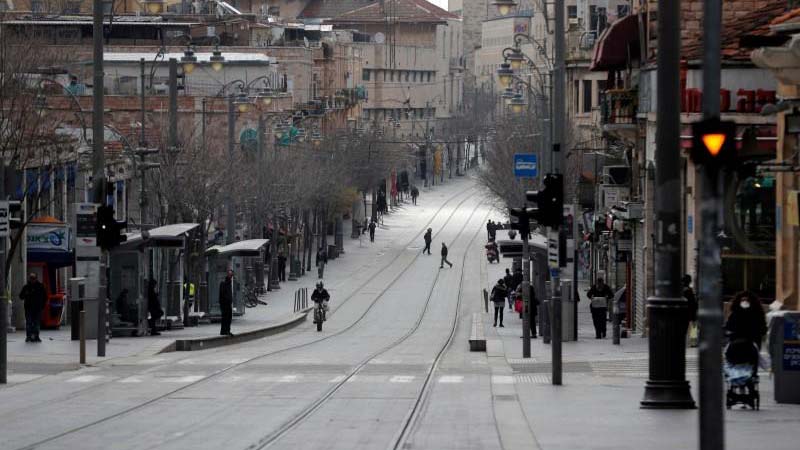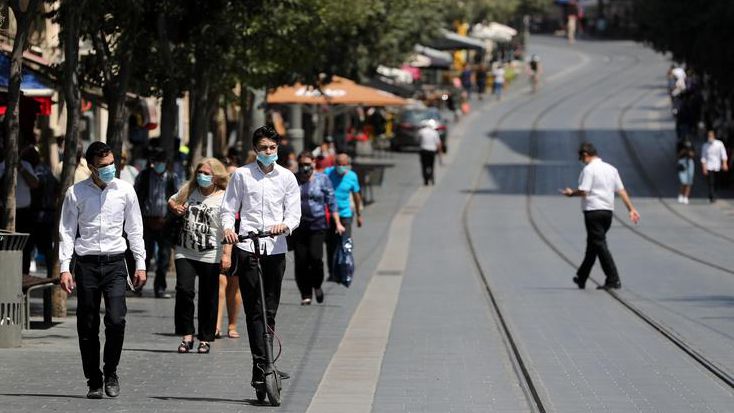01:24

Israel will enter a second nationwide lockdown on Friday at the onset of the Jewish high holiday season, forcing residents to stay mostly at home amid a resurgence in new coronavirus cases.
The country's initial lockdown was imposed in late March and eased in May as new cases tapered off, reaching lows in the single digits.
But Israeli leaders now acknowledge they lifted restrictions too soon in the hope of avoiding further economic damage by reopening the private sector.
They had also permitted mass gatherings, which contributed in pushing new cases to daily highs of over 5,000.
The new lockdown, which is due to begin at 2 p.m. (1100 GMT) and will last three weeks, coincides with the start of the Jewish New Year, Rosh Hashanah, traditionally a time for large family gatherings and group prayer.
During the lockdown, which comes during the Jewish high holiday season, Israelis will have to stay within 500 meters of their houses, but can travel to workplaces that will be allowed to operate on a limited basis.
Schools and shopping malls will be closed but supermarkets and pharmacies will remain open. The public sector will operate with fewer staff, but non-governmental offices and businesses will not have to close, as long as they do not accept customers.
Indoor gatherings are limited to 10 people and no more than 20 people outdoors.
"I know those measures will exact a heavy price on us all," Prime Minister Benjamin Netanyahu said in a televised address. "This is not the kind of holiday we are used to. And we certainly won't be able to celebrate with our extended families."

A street view of central Jerusalem amid the COVID-19 pandemic, July 7, 2020. /Reuters
A street view of central Jerusalem amid the COVID-19 pandemic, July 7, 2020. /Reuters
Social distancing and limits on the number of worshippers will go into effect at synagogues, usually packed for Rosh Hashanah and Yom Kippur, the Jewish Day of Atonement that begins at sunset on September 27.
Since the outbreak began, 1,169 people have died in Israel, a country of nine million.
Health officials blame patchy compliance with mandatory mask-wearing, poor social distancing in close-quarter Arab and ultra-Orthodox Jewish communities and in schools for fueling a second wave of cases.
Many Israelis have accused Netanyahu, whose Cabinet ministers have openly quarreled about how to deal with the pandemic, of having been slow to respond to the new surge, and thousands have gathered for weekly protests outside his official residence in Jerusalem.
(With input from Reuters)